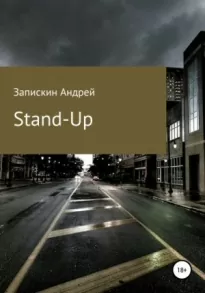RED SYMPHONY

- Автор: Dr. Landowsky
- Жанр: Старинная литература
Читать книгу "RED SYMPHONY"
R. - For example?
G. - Some person with powers of attorney and representation.
R. - But for what? Just for the pleasure of becoming acquainted wlth him? For the pleasure of a talk? Bear in mind that the assumed person, in case of his appearance, will not present you with credentials with seals and crests and wlll not wear a diplomatic uniform, at least a man from "Them"; if he were to say something or promise, then it wlll have no Juridical force or meaning as a pact ... Understand that "They" are not a State; "They" are that which the International was before 1917, that which it still is nothing and at the same time everything. Imagine to yourself if it is possible that the USSR would have negotiations with freemasonry, with an espionage organiation, with the Macedonian Komitadgi or the Croatian Ustashi. Would not some Juridlcal agreement be written? ... Such pacts as the pact of Lenin with the German General Staff, as the pact of Trotzky with "Them" -- are realized without written documents and without signatures. The only guarantee of their execution is rooted in the circumstance that the carrying out of that which has been agreed is profitable for the parties to the pact, this guarantee is the sole reality in the pact, however great may be its importance.
{p. 47} G. - From what would you begin in the present case?
R. - Simple; I should begin already from to-morrow to sound out Berlin ...
G. - In order to agree about the attack on Poland?
R. - I would not begin with that ... I would display my willingness to yield and would hint about certain disappointments among the democracies, I would soft-pedal in Spain ... This would be an act of encouragement; then I would drop a hint about Poland. As you see - nothing compromising, but enough so that a part of the OKW (German High Command - Transl.), the Bismarckists, as they are called, would have some arguments to put before Hitler.
G. - And nothing more?
R. - For the beginning, nothing more; this is already a big diplomatic task.
G. - Speaking frankly, having in mind the aims which have been dominant in the Kremlin until now, I do not think that anyone would at present dare to advise such a radical change in international policy. I propose to you, Rakovsky, to transform yourself in imagination into that person at the Kremlin which will have to take the decision ... On the basis only of your disclosures, arguments, your hypotheses and persuasion, as I see it, it would be impossible to convince anyone. I personally, after having listened to you and at the same time, I shall not deny it, having experienced a strong influence from your explanations, of your personality, have not for a single moment experienced the temptation to consider the German-Soviet pact to be something realizable.
R. - International events will force with irresistible strength ...
G. - But that would be a loss of valuable time. Consider something concrete, something which I could put forward as a proof of your veracity and credibility ... In the contrary case I should not dare to transmit your information about our conversation; I should edit it with all accuracy, but it would reach the Kremlin archives and stay there.
R. - Would it not be enough to bring about that it is taken into consideration if someone, even in a most official manner, were to have a talk with some very important person?
G. - It seems to me that this would be something real.
R. - But with whom?
G. - This is only my personal opinion, Rakovsky. You had mentioned concrete persons, big financiers; if I remember correctly, you had spoken about a certain Schiff, for example; then you mentioned another who had been the go-between with Hitler for the purpose of financing him. There are also politicians or persons with a big position, who belong to "Them" or, if you like, serve "Them." Someone like that could be of use to us in order to start something practical ... Do you know someone?
R. - I do not think it is necessary ... Think: about what will you be negotiating? Probably about the plan which I have set out, is that not so? For what? At the present moment "They" need not do anything in this context; "Their" mission is "not to do." And for that reason you would not be able to agree about any positive acton and could not demand it ... Remember, consider well.
{p. 48} G. - Even if that is so, yet in view of our personal opinion there must be a reality, even if a useless one ..., a man, a personality which would confirm the credibility of the power, which you ascribe to "Them."
R. - I shall satisfy vou, although I am sure of the uselessness of this. I have already told you that I do not know who is a part of "Them," but have assurances from a person who must have known them.
G. - From whom?
R. - From Trotzky. From Trotzky I know only that one of 'Them" was Walter Rathenau, who was well known from Rapallo. You see the last of "Them" who occupied a political and social position, since it was he who broke the economic blockade of the USSR. Despite the fact that he was one of the biggest millionaires; of course, such also was Lionel Rothschild. I can with confidence mention only these names. Naturally I can name still more people, the work and personality of whom I determine as being fully "Theirs," but I cannot confirm what these people command or whom they obey.
G. - Mention some of them.
R. - As an institutions - the Bank of Kuhn, Loeb & Co., of Wall Street; to this bank belong the families of Schiff, Warburg, Loeb and Kuhn; I say families in order to point out several names, since they are all connected among themselves by marriages; then Baruch, Frankfurter, Altschul, Cohen, Benjamin, Strauss, Steinhardt, Blom, Rosenman, Lippmann, Lehman, Dreifus, Lamont, Rothschild, Lord, Mandel Morgenthau, Ezekiel, Lasky. I think that that will be enough names; if I were to strain my memory, then perhaps I would remember some more but I repeat, that I do not know who among them can be one of "Them" and I cannot even assert, that any one of them is definitely of their number; I want to avoid any responsibility. But I certainly think that any one of the persons I have enumerated, even of those not belonging to "Them," could always lead to "Them" with any proposition of an important type. Of course, independently of whether this or that person does or does not belong to "Them," one cannot expect a direct reply. The answer will be given by facts. That is the unchangeable tactic which they prefer and with which they force one to reckon. For example, if you would risk beginning diplomatic initiatives, then you would not need to make use of the method of a personal approach to "Them"; one must limit oneself to the expression of thoughts, the exposition of some rational hypothesis, which depends on unknown definite factors. Then it only remains to wait.
G.--You understand that I have not ot a card-index at my dispesal at the moment, in order to establish all the men yvou have mentioned: I assume that they are probably somewhere far away. Where?
R. - Most of them in the United States.
G.- Plese understand that if we were to decide to act, then we would have to devote much time to it. But the matter is urgent, and urgent not for us, but for you. Rakovsky.
R. - For me?
G.--Yes. for you. Remember that your trial will take place very soon. I do not know, but I think it will not be risky to assume that if all that had been discussed here were to interest the Kremlin, then it
{p. 49} must interest them before you appear before the tribunal: that would be for you a decisive matter. I think it is in your personal interests that you should propose something quicker to us. The most important thing is to get proofs that you spoke the truth, and to do this not during a period of several weeks, but during several days. I think that if you were to succeed in this, then I could nearly give you fairly solid assurances concerning the possibility of saving your life ... In the contrary case I answer for nothing.
R. - In the end I shall take the risk. Do you know if Davis is at present in Moscow? Yes, the Ambassador of the United States.
G. - I think he is; he should have returned.
R. - Only an exceptional situation gives me the right, as I see it, against the rules, to make use of an official intermediary.
G. - Therefore we can think that the American Government is behind all this ...
R. - Behind - no under all this ...
G. - Roosevelt?
R. - What do I know? I can only come to conclusions. You are all the time obsessed with the mania of political espionage. I could manufacture, in order to please you, a whole history; I have more than sufficient imagination, dates and true facts in order to give it veracity in appearance, which would be close to looking obvious. But are not the generally known facts more obvious? And you can supplement them with your own imagination, if you wish. Look yourself. Remember the morning of the 24th October 1929. The time will come when this day will be for the history of the revolution more important than October, 1917. On the day of the 24th October there took place the crash of the New York Stock Exchange, the beginning of the so-called "depression," a real revolution. The four years of the Government of Hoover - are years of revolutionary progress: 12 and 15 millions on strike. In February, 1933 there takes place the last stroke of the crisis with the closing of the banks. It is difficu1t to do more than capital did in order to break the "classical American," who was still on his industrial bases and in the economic respect enslaved by Wall Street. It is well known that any impoverishment in economics, be it in relation to societies or animals, gives a flourishing of parasitism, and capital is a large parasite. But this American revolution pursued not only the one aim of increasing the power of money for those who had the right to use it, it pretended to even more. Although the power of money is political power, but before that it had only been used indirectly, but now the power of money was to be transformed into direct power. The man through whom they made use of such power was Franklin Roosevelt. Have you understood? Take note of the following: In that year 1929, the first year of the American revolution, in February Trotzky leaves Russia; the crash takes place in October ... The financing of Hitler is agreed in July, 1929. You think that all this was by chance? The four years of the rule of Hoover were used for the preparation of the seizure of power in the United States and the USSR; there by means of a financial revolution, and here with the help of war and the defeat which was to follow. Could some good novel with great imagination be more obvious to you? You can understand that the execution of
{p. 50} the plan on such a scale requires a special man, who can direct the executive power in the United States, who has been predetermined to be the organizing and deciding force. That man was Franklin and Eleanor Roosevelt. And permit me to say that this two-sexed being is not simply irony. He had to avoid any possible Delilah.
G. - Is Roosevelt one of "Them"?
R. - I do not know if he is one of "Them," or is only subject to "Them." What more do you want? I think that he was conscious of his mission, but cannot assert whether he obeyed under duress of blackmail or he was one of those who rule; it is true that he carried out his mission, realized all the actions which had been assigned to him accurately. Do not ask me more, as I do not know any more.
G. - In case it should be decided to approach Davis, in which form would you do it?
R. - First of all you must select a person of such a type as "the baron"; he could be useful ... Is he still alive?
G. - I do not know.
R. - All right, the choice of persons is left to you. Your delegate must present himself as being confidential or not modest, but best of all as a secret oppositionist. The conversation must be cleverly conducted concerning that contradictory position into which the USSR has been put by the so-called European democracies, by their union against National-Socialism. This is the conclusion of an alliance with the British and French Imperialism, the contemporary real Imperialism, for the destruction of the potential Imperialism. The aim of the verbal expressions must be to conjoin the false Soviet position with an equally false one of American democracy ... It also sees itself forced to support Colonial Imperialism for the defence of democracy within England and France. As you see, the question can be put onto a very strong logical foundation. After that it is already very easy to formulate an hypothesis about actions. The first: that neither the USSR, nor the United States are interested in European Imperialism and thus the dispute is brought down to the question of personal hegemony; that ideologically and economically Russia and America want the destruction of European Colonial Imperialism, be it direct or oblique. The United States want it even more. If Europe were to lose all its power in a new war, then England, not having its own forces, with the disappearance of Europe as a force, as power, would from the first day lean, with all its weight and with the whole of its Empire, speaking the English language, on the United States, which would be inevitable both in the political and economic sense ... Analyze what you have heard in the light of the Left conspiracy, as one might say, without shocking any American boureois. Having got to this point, one could have an interval for a few days. Then, having noted the reaction, it will be necessary to move further. Now Hitler comes forward. Here one can point to any aggression: he is fully an aggressor and of this there can be no doubt. And then one can go over to asking a question: What common action should be undertaken by the United States and the Soviet Union in view of the war between the Imperialists, who want it? The answer could he - neutrality. One must argue again: yes, neutrality, but it does not depend on the wish of one side, but also of the aggressor. There can be a guarantee of neutrality only when the aggressor cannot attack or it does
{p. 51} not suit him. For this purpose the infallible answer is the attack of the aggressor on another Imperialist State. From this it is very easy to go over to the expression of the necessity and morality, with a view to guaranteeing safety, for provoking a clash between the Imperialists, if that clash were not to take place of its own accord. And if that were to be accepted in theory, and it will be accepted, then one can regulate the question of actions in practice, which would be only a matter of technique. Here is a scheme: (1) A pact with Hitler for the division between us of Czechoslovakia and Poland (better the latter). (2) Hitler will accept. If he is capable of backing a bluff for the conquest, i.e. the seizure of something in alliance with the USSR, then for him there will be full guarantee in that the democracies will yield. He will be unable to believe their verbal threats as he knows that those who try to intimidate by war threats are at the same time partisans of disarmament and that their disarmament is real. (3) The democracies will attack Hitler and not Stalin; they will tell the people that although both are guilty of aggression and partition, but strategical and logical reasons force them to defeat them one by one: first Hitler and then Stalin.
G. - But will they not deceive us with truth?
R. - But how? Does not Stalin dispose of freedom of action in order to help Hitler in sufficient measure? Do we not put in his hands the possibility of continuing the war between the Capitalists until the last man and the last pound? With what can they attack him? The exhausted States of the West will already have enough on their hands with internal Communist revolution, which in the other case may triumph.
G. - But if Hitler achieves a quick victory and if he, like Napoleon, mobilizes the whole of Europe against the USSR?
R. - This is quite improbable! You forget about the existence of the United States. You reject the power factor, a greater one. Is it not natural that America, imitating Stalin, would on its part help the democratic States? If one were to co-ordinate "against the hands of the clock" the help to both groups of fighters, then thus there will be assured without failure a permanent extension of the war.
G. - And Japan?
R. - Is not China enough for them? Let Stalin guarantee them his non-intervention. The Japanese are very fond of suicide, but after all not to such an extent as to be capable of simultaneously attacking China and the USSR. Any more objections?
G. - No, if it were to depend on me, then I would try ... But do you believe that the delegate ...?
R. - Yes, I believe. I was not given the chance of speaking with him, but note one detail: the appointment of Davis became known in November, 1936; we must assume that Roosevelt thought of sending him much sooner and with that in mind began preliminary steps; we all know that the consideration of the matter and the official explanations of the appointment take more than two months. Apparently his appointment was agreed in August ... And what happened in August? In August Zinoviev and Kamenev were shot. I am willing to swear that his appointment was made for the purpose of a new involvement of "Them' in the politics of Stalin. Yes, I certainly think so. With what an inner excitement must he have travelled, seeing how one after another
{p. 52} there fall the chiefs of the opposition in the "purges" which follow one on another. Do you know if he was present at trial of Radeck?
G. - Yes.
R. - You will see him. Have a talk with him. He expects it already for many months.
G. - This night we must finish; but before we part I want to know something more. Let us assume that all this is true and all will be carried out with full success. "They" will put forward definite conditions. Guess what they might be?
R. - This is not difficult to assume. The first condition will be the ending of the executions of the Communists, that means the Trotzkyists, as you call them. Then, of course, they will demand the establishment of several zones of influence, as I had mentioned. The boundaries which will have to divide the formal Communism from the real one. That is the most important condition. There will be mutual concessions for mutual help for a time, while the plan lasts, being carried out. You will see for example the paradoxial phenomenon that a whole crowd of people, enemies of Stalin, will help him, no they will not necessarily be proletarians, nor will they be professional spies. There will appear influential persons at all levels of society, even very high ones, who will help the Stalinist formal Communism when it becomes if not real, then at least objective Communism. Have you understood me?





